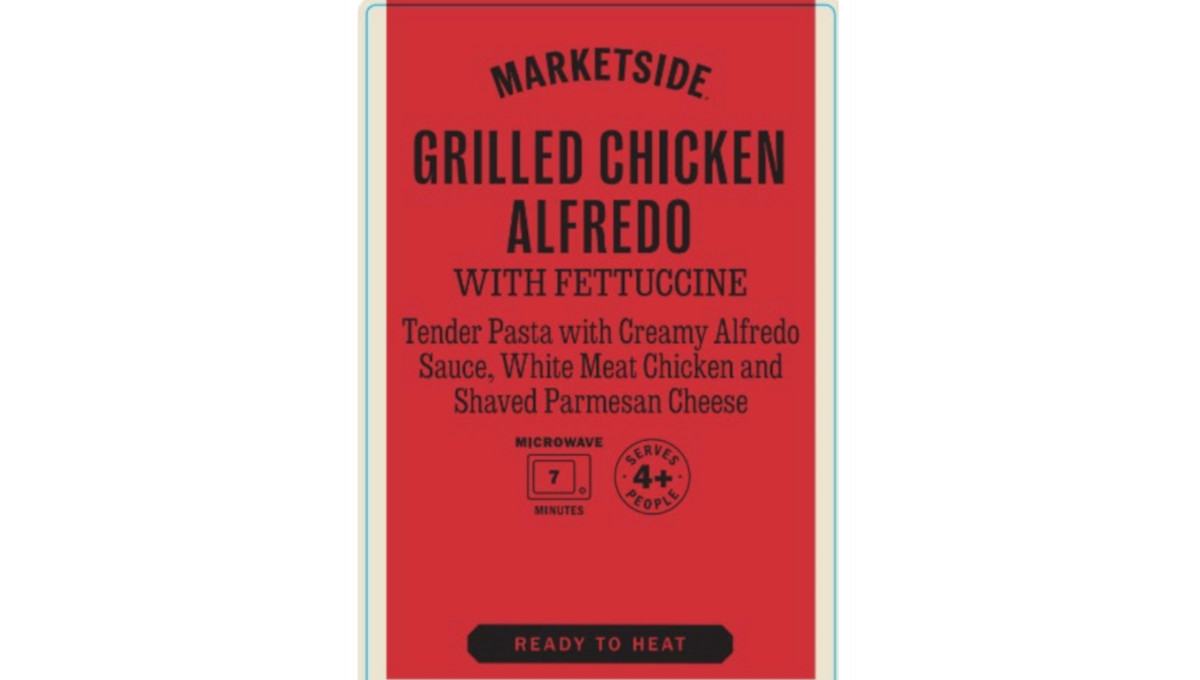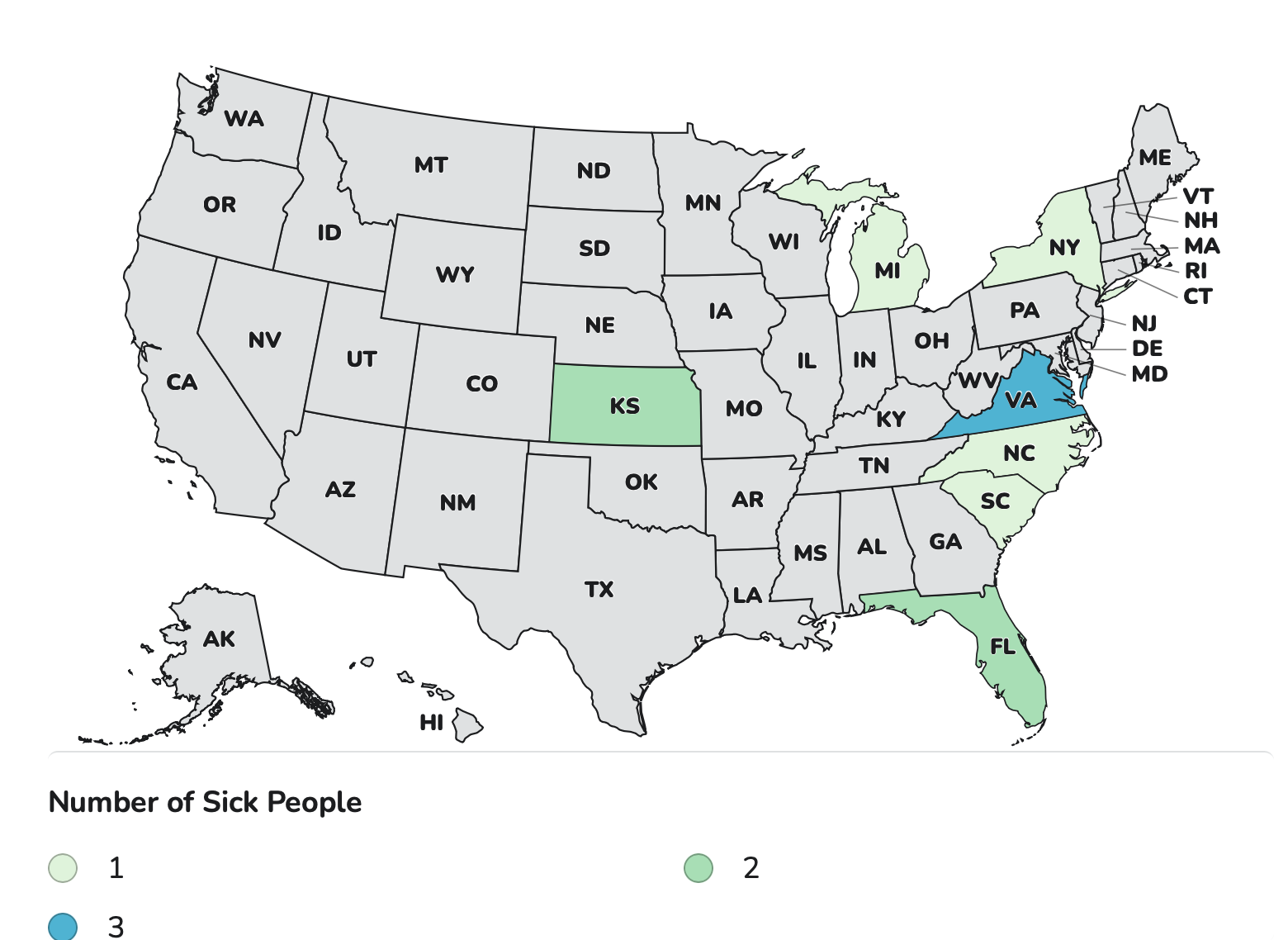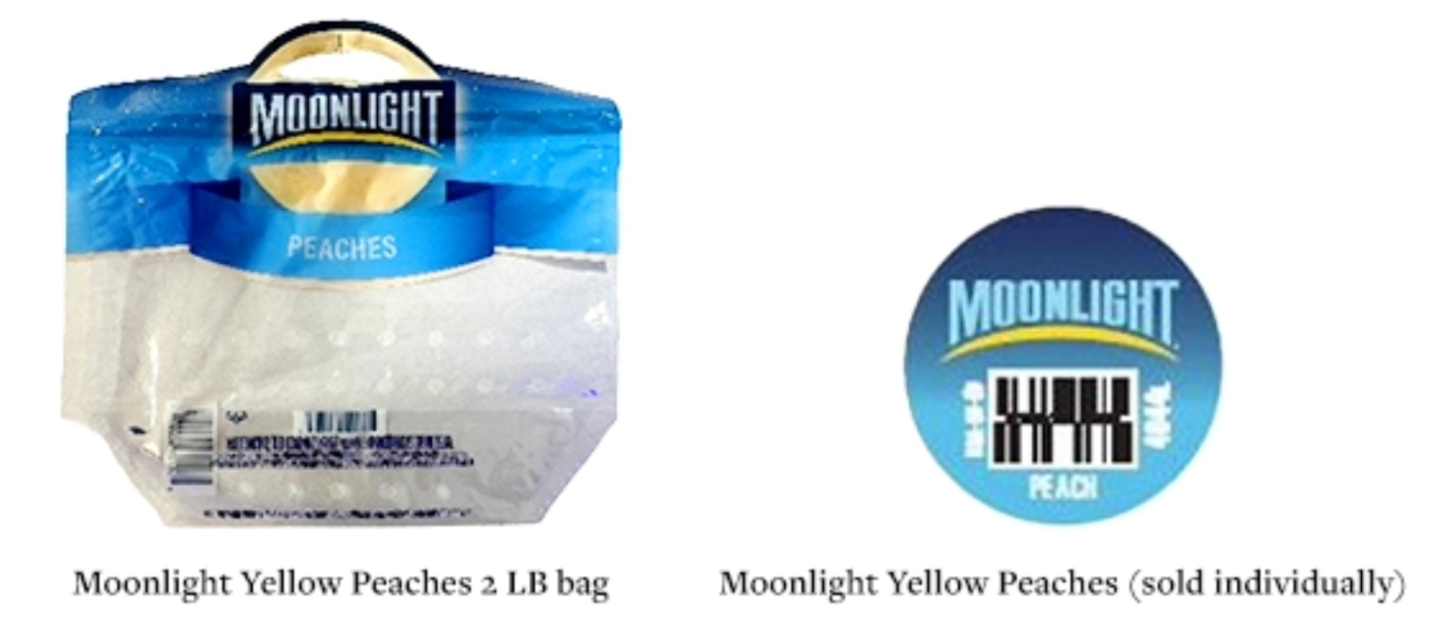A Listeria monocytogenes outbreak linked to chicken fettuccine alfredo products from FreshRealm has sickened 17 people across 13 states, leading to a recall of all products produced before June 17, 2025, according to the U.S. Department of Agriculture’s Food Safety and Inspection Service (FSIS). The outbreak has been associated with three deaths and one fetal loss.
The recalled products, distributed to Kroger and Walmart retail locations nationwide under various brand names, were produced at FreshRealm establishments in San Clemente, CA, Montezuma, GA, and Indianapolis, IN.
FSIS is concerned that some recalled products may remain in consumers’ refrigerators or freezers.
Recalled products:
- 32.8-oz. tray packages containing “MARKETSIDE GRILLED CHICKEN ALFREDO WITH FETTUCCINE Tender Pasta with Creamy Alfredo Sauce, White Meat Chicken and Shaved Parmesan Cheese” with best-by date 06/27/25 or prior.
- 12.3 oz. tray packages containing “MARKETSIDE GRILLED CHICKEN ALFREDO WITH FETTUCCINE Tender Pasta with Creamy Alfredo Sauce, White Meat Chicken, Broccoli and Shaved Parmesan Cheese” with best-by date 06/26/25 or prior.
- 12.5 oz. tray packages containing “HOME CHEF Heat & Eat Chicken Fettuccine Alfredo with pasta, grilled white meat chicken, and Parmesan cheese” with best-by date 06/19/25 or prior.
The products bear establishment numbers “EST. P-50784,” “EST. P-47770,” or “EST. P-47718” on the packaging and the USDA mark of inspection.
Product labels can be viewed here.
Outbreak details
FSIS, in collaboration with public health partners, is investigating the Listeria monocytogenes outbreak, with illnesses reported between August 2024 and May 2025. The outbreak strain was identified in a routine FSIS sample of chicken fettuccine alfredo collected in March 2025 at a FreshRealm facility. The sampled product was destroyed and did not enter commerce.
Purchase records from two ill individuals and verbal descriptions from two others traced the implicated products to FreshRealm establishments. Despite investigations into the production facility and ingredients, the contamination source remains unidentified.
FSIS is continuing to work with public health partners to determine if a specific ingredient in the chicken fettuccine alfredo is responsible for the outbreak.
Consumer guidance
Consumers are urged not to consume these products and to discard them or return them to the place of purchase. Retailers, restaurants, and distributors should not sell or serve the recalled items.
About Listeria infections
Food contaminated with Listeria monocytogenes may not look or smell spoiled but can still cause serious and sometimes life-threatening infections. Anyone who has eaten any recalledmushrooms and developed symptoms of Listeria infection should seek medical treatment and tell their doctors about the possible Listeria exposure.
Also, anyone who has eaten any of the recalled products should monitor themselves for symptoms during the coming weeks because it can take up to 70 days after exposure to Listeria for symptoms of listeriosis to develop.
Symptoms of Listeria infection can include vomiting, nausea, persistent fever, muscle aches, severe headache, and neck stiffness. Specific laboratory tests are required to diagnose Listeria infections, which can mimic other illnesses.
Pregnant women, the elderly, young children, and people such as cancer patients who have weakened immune systems are particularly at risk of serious illnesses, life-threatening infections, other complications and death. Although infected pregnant women may experience only mild, flu-like symptoms, their infections can lead to premature delivery, infection of the newborn, or even stillbirth.
(To sign up for a free subscription to Food Safety News, click here)






